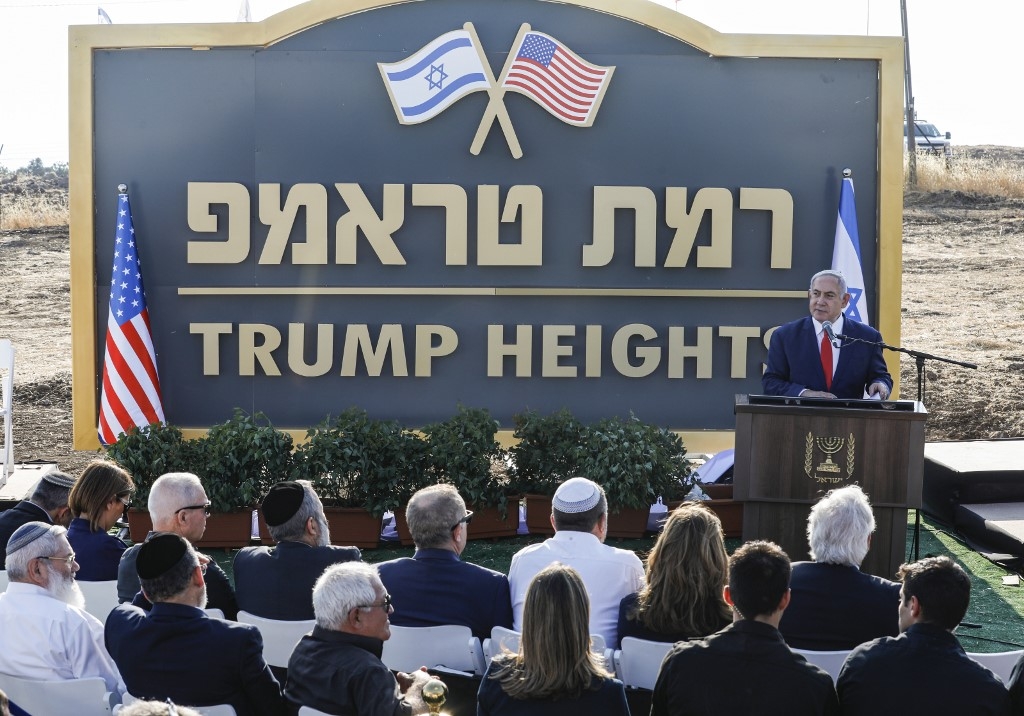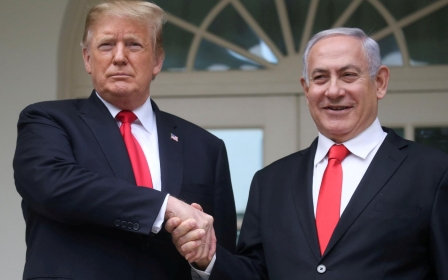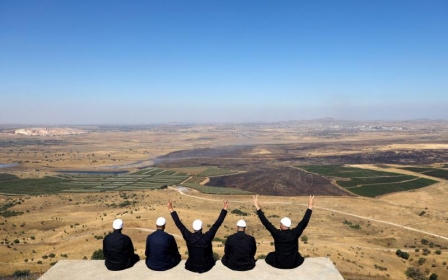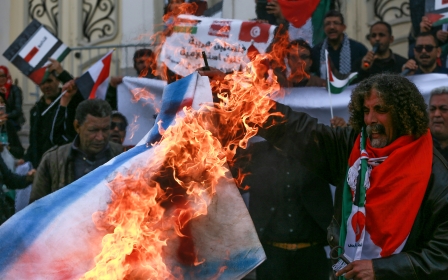Netanyahu inaugurates 'Trump Heights' Israeli settlement in occupied Golan Heights

Israeli Prime Minister Benjamin Netanyahu announced on Sunday plans to establish a new Israeli settlement in the Golan Heights named after US President Donald Trump.
Netanyahu unveiled a "Trump Heights" sign, also known as Ramat Trump, to mark the site of the new settlement in recognition of Trump's decision to recognise Israeli sovereignty over the Golan Heights.
"We're going to establish a new community, something that hasn't happened in many years, and in honour of President Donald Trump," Netanyahu said during a government meeting.
Despite the attention surrounding Netanyahu's announcement, his government is temporary and cannot officially approve the settlement.
Haaretz reported on Sunday that Netanyahu's government can only begin the "administrative work" on the project.
Stay informed with MEE's newsletters
Sign up to get the latest alerts, insights and analysis, starting with Turkey Unpacked
The settlement will be part of the Golan Regional Council and be built in the Kela Alon community, according to Haaretz.
Critics of the settlement slammed Netanyahu and described the inauguration of Trump Heights as a "PR stunt".
“Anyone who reads the fine print in this ‘historic’ decision will understand that this is nothing more than a nonbinding, fake policy,” Blue and White MK Zvi Hauser told the Times of Israel.
“There is no budgeting, no planning, no location for a settlement, and there is no binding decision to implement the project. But at least they insisted on a name for the settlement.”
Trump signed a presidential order on 25 March recognising Israeli sovereignty over the Golan Heights - a move considered helpful to Netanyahu in his re-election bid.
Middle East Eye delivers independent and unrivalled coverage and analysis of the Middle East, North Africa and beyond. To learn more about republishing this content and the associated fees, please fill out this form. More about MEE can be found here.




